#Jang Young Gyu
Photo

✨A Galaxy of creativity with amazing score by: ✨
Dan Levy - The Sith
Leo Pearson - Screecher's Reach
Andrés Walker - In The Stars
Jean-Marc Petsas - I Am Your Mother
Lee Byung-hoon/ Jang Young Gyu - Journey to the Dark Head
Olivier Deriviere - The Spy Dancer
Sneha Khanwalkar - The Bandits of Golak
Daniel Lopatin - The Pit
Markus Wormstorm - Aau's Song
Star Wars: Visions Volume 2 - Original Television Score by Walt Disney Records
Stream TOMORROW on Spotify,iTunes,Deezer,Pandora,TIDAL , Apple Music,Amazon Music & YouTube Music.
#Star Wars#Star Wars Visions#Star Wars: Visions#Dan Levy#Leo Pearson#Andrés Walker#Jean-Marc Petsas#Lee Byung-hoon#Jang Young Gyu#Olivier Deriviere#Sneha Khanwalkar#Daniel Lopatin#Markus Wormstorm#George Lucas#Walt Disney Records#LucasFilm#Lucasfilm Entertaiment#Lucasfilm Ltd#LucasFilm Animation#Disney+#Disney Plus#Disney+ Originals#Disney Plus Originals#Disney+ Original Series#Disney Plus Original Series#Disney+ Original Animated Series#Disney Plus Original Animated Series
20 notes
·
View notes
Text
#jang young gyu#lee byung hoon#star wars#visions#volume 2#journey to the dark head#original soundtrack#Spotify
1 note
·
View note
Text
Dramas 2023
Just some of my thoughts for some of the dramas of 2023...
-KING THE LAND !!!!!
The natural chemistry between the main leads is just so so soooo real that it makes it hard to believe that they're "just friends" in reality; However, at the same time it makes sense, as both Junho and Yoona have been in the entertainment industry and have known each other for a long time (2pm and SNSD go wayyyy back, IYKYK). I'm kind of surprised it took them this long to meet for a drama project, but as a fan of both 2pm and SNSD, I'm so glad to see them both working together again. There are so many funny moments in this drama and the added sound effects and acting make some of the scenes so funny. I also like the easter eggs added in the drama haha. Definitely a feel-good drama. I ship the main leads..!! They already know each other so well and they're also starting to look the same haha.
-See You in My 19th Life
This series is based on the webtoon, and the drama was surprisingly not bad. Ahn Bo Hyun and Shin Hye Sun both are great together, and I feel like recently Shin Hye Sun has been typecasted into these somewhat typical bold, fearless characters that are also seemingly reflective of her own personality but in this drama I was able to kind of see somewhat of a different side to her (hard to explain hahah). And Ahn Bo Hyun...he's very versatile as an actor. And finding out that he's now dating Jisoo of BP...super unexpected haha !! The drama itself is somehow comforting with all the characters meshing well together. Pleasant~~
-Celebrity
Hmmmmm this one was great but something about the female lead I can't put my finger on.. While I do feel like her acting has improved over the years and I see that in some scenes of this drama as well, there were parts where it just seemed flat but I'm not sure if it's just how her character was written. The storyline itself was definitely interesting nonetheless, and I didn't have much expectations going into it, but it does touch upon the effects of social media in modern times and I liked the mystery/thriller type of vibe.
-D.P.
Star-studded cast; haven't watched this yet but excited to pick up where they left off for season 1.
-The Real Has Come
The cast is talented and there are strong characters in this drama and lots of twists and funny moments. It's light and funny, but there's 50 episodes so there are definitely times where it's a bit draggy but also that's typical of any family dramas.
-Oasis
Jang Dong Yoon!!! Hahaha I think the cast did a great job with their portrayals though I feel like Jang Dong Yoon just has such a baby-face and looks like he wouldn't hurt a fly but he looked so cool playing this role as Lee Doo Hak. I liked the old-fashioned style of this drama as it took place in the 80s-90s Korea, so it was really refreshing to see the type of fashion, dialects and overall atmosphere during that time through this drama, and think about how much has changed. There were parts of the drama that felt a little repetitive, but I think overall the cast made up for it.
-Apple of My Eye (금이야, 옥이야)
Typical family drama, a little predictable but expected haha.
#d.p.#d.p. season 2#dp season 2#king the land#lee junho#lim yoona#see you in my 19th life#ahn bo hyun#shin hye sun#celebrity#park gyu young#kang min hyuk#lee chung ah#jung hae in#son suk ku#koo kyo hwan#koo gyo hwan#baek jin hee#ahn jae hyun#jang dong yoon#seol in ah#seo jun young#yoon dayeong#킹더랜드#이준호#호#임윤아#정해인#구교환#손석구
10 notes
·
View notes
Text
Drama Review: Tale of the Nine-Tailed 1938

Source: Google Images
An unexpected case leads Lee Yeon back in time to 1938, where he reencounters Ryu Hong Joo. Once a guardian spirit of the mountain in the west, she's now the owner of a high-end restaurant in the capital city of Gyeongseong. He also meets his younger brother Lee Rang. Meanwhile, another former guardian spirit and ex-friend Cheon Moo Young has become hostile. Lee Yeon struggles to return to the present, to his loved one.
Source: MyDramaList (2023)
youtube
One of the Most Unserious Dramas Out There
Before we start: I did not watch the first one and am not planning to watch it at all. Going into Tale of the Nine-Tailed 1938 I admit I had to do a Q&A with my sister to understand what happened between the Lee brothers in this drama's modern world. However, one does not actually need to watch the previous drama to watch this and honestly speaking, from what I saw and knew about it, Tale of the Nine-Tailed 1938 is a whole lot more interesting and fun.
That being said, lets get on with how I felt about this drama. I am not kidding when I say, this is the most unserious drama for a drama anyone would think to be serious. Practically half of this drama was comedy and that is a praise. The comedy bit plays a part in making Tale of the Nine-Tailed 1938 so darn interesting and fun. Yet, this show also pulls on your heartstrings be it the brothers, the best friends or the best friends' righthand people.
I understand romance was a huge part of the first instalment but in this, it was just a tiny bit and I believe that is why I freaking loved watching this drama. In terms of what romance there was, I have no complains too. I mean, I adore the mermaid and the only complain I have is that I wished we could have gotten more scenes with her powers. When Rang said he liked someone who's stronger than him, he was not lying. The way Yeohee was written was right up my alley, she may not be as powerful as Rang but she saved him more times than he saved her and even when she was in danger, she still did not back down on a losing fight. For that reason, Yeohee is I really thought I would dislike the mermaid but nope, I love her.
Another thing I seriously love about Tale of the Nine-Tailed 1938 was the friendships. Any friendship in this drama was a pleasure to watch. Obviously, the friendship among our three mountain gods was my favourite. Don't get me wrong, Yeon is extremely lovable but in this trio, I need to worship my lady, Hongjoo and lovingly protect the cinnamon roll, Mooyoung. These three portrayed my kind of friendship where they were tight as children, still tight as adults and even with unfortunate circumstances, they might hate but they love each other more. Of course, the friendship among the roommates was a delight too. I only highlighted my top two favourites but I am not lying when I claim that this show did friendships so well.
Now, now. We have a problem though. At the beginning of this drama, Taluipa told Yeon even if he changes something in 1938, it does not affect 2023. I think its safe for me to say that we do not want that to be true, right? I am just willing to believe that what Taluipa said meant that Rang would still be dead in 2023, nothing Yeon did in 1938 changed Rang's decision in the future. I would even go as far to say that, everything Yeon did in 1938 further encouraged Rang to make that choice in the future. That is all I am willing to believe because I hear there's a third season and I need my best friends and roommates reunited to fight (without a doubt) the original mountain god. Yes, I know I said all I am willing to believe is that Rang is still dead but that's because I am sure there will be no Nine-Tailed dramas without both Lee brothers alive.
When the next instalment comes out, I will watch it as long as Hongjoo and Mooyoung are still around (if Jaeyoo, Miyeon and Yeohee are too, even better). I don't even care if there will be more romance although I wish there wouldn't be.
Rating: ★★★★★
P.S.: Anyone else felt that the big bad villains were so pathetic as compared to the smaller villains?
#drama review#tale of the nine-tailed 1938#tale of the nine tailed 1938#korean drama#lee yeon#lee rang#ryu hong joo#cheon moo young#jang yeo hee#taluipa#yoo jae yoo#lee mi yeon#lee dong wook#kim bum#kim so yeon#ryu kyung soo#woo hyun jin#kim jung nan#han gyu won#jo dal hwan
17 notes
·
View notes
Text
Daily Dose of Sunshine
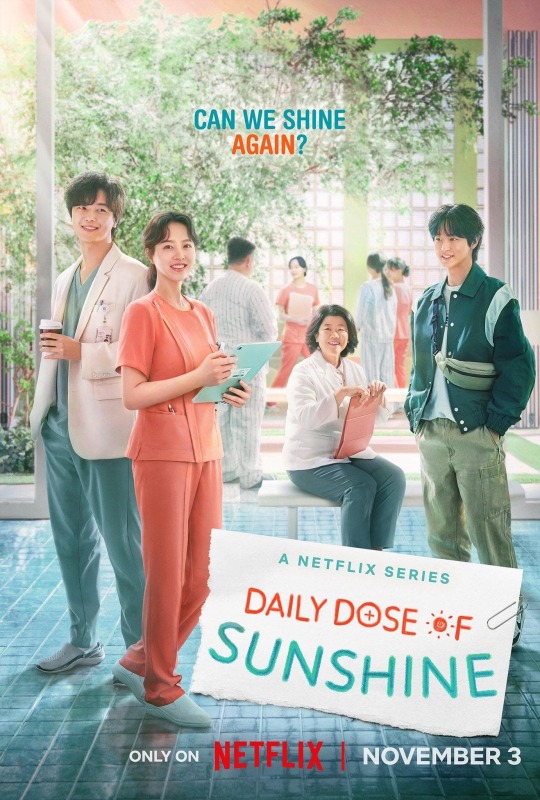
TV Shows/Dramas watched in 2023
Daily Dose of Sunshine (2023, South Korea)
Directors: Lee Jae Kyu & Kim Nam Su
Writers: Lee Nam Gyu, Oh Bo Hyun & Kim Da Hee (based on the webtoon by Lee Ra Ha)
Mini-review:
When I heard this drama was coming out, I got a bit worried, since k-dramas don't have the best track record when it comes to handling this topic. Thankfully, this show's team mostly pulled it off. Sure, it falls into stereotypes from time to time, but its focus is always on empathy, acceptance and tolerance. It really tries to make the viewer understand how hard and undeservedly misunderstood mental illnesses are. For better or worse, that also means the drama doesn't shy away from showing the darkest parts of these illnesses, so please be very careful if this topic is triggering for you, cause there are a lot of hard-to-watch scenes. In terms of acting, the entire cast is great, especially the actors playing the patients, and Park Bo Young. In fact, this might arguably be her career's crowning achievement. The one thing I didn't really like were the romantic parts. I just didn't care for any of the romances, and the show would've been better off without them. Anyway, Daily Dose of Sunshine surprised me by handling a complex topic in a much more humane and hopeful way that I expected.
#daily dose of sunshine#lee jae kyu#kim nam su#lee nam gyu#oh bo hyun#kim da hee#park bo young#yeon woo jin#jang dong yoon#lee jung eun#lee sang hee#chang ryul#lee yi dam#jeon bae soo#kim jong tae#park ji yun#hwang young hee#noh jae won#lim jae hyeok#kong seong ha#yoo in soo#kim yeo jin#mental health#dramedy#k drama#netflix#2023 tv shows and dramas
3 notes
·
View notes
Text
"I wish I had an older brother like you"...Moon Sang-Tae was the best older brother I have come across in Kdramas... This drama was such an emotional rollercoaster...cuz you may not have the same story but it does resonate in different ways for different people...🌸🌸

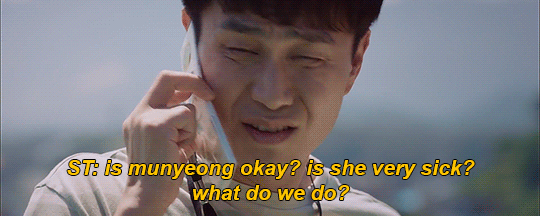








#itsokaynottobeokay#seo yea ji#kim soo hyun#oh jung se#park gyu young#kim joo hun#park jin joo#jang young nam#asian actor#asiandramanet#drama korea#drama recommendation#k drama#kdrama#kdrama actor#kdrama blog#kdrama couple#asian actress#asiandramasource#asian hunk#asiandramaedit#korean romance#korean entertainment#korean drama#psychological drama#psychotherapy#kdramaaddict#kdrama actress#kdramagifs#kdramaland
24 notes
·
View notes
Text
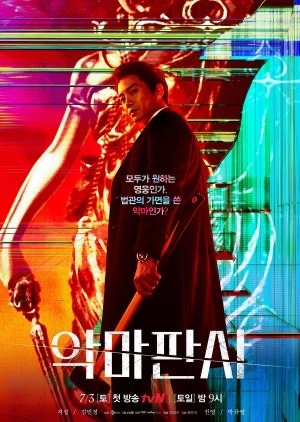
The Devil Judge. 8
Story: 9
Acting: 10
Chemistry: 10
Comparable to: Beyond Evil (kdrama); Taxi Driver (kdrama)
I love dystopia type of scenarios so this storyline was really interesting. Yes in ways it has been done before, but this was very nicely executed. First and foremost the acting in this is what makes this drama so brilliantly brilliant. It’s a very dark series. So if you’re looking for fluffy-ness and romance, it’s nowhere to be seen. No BL either. Maybe a sparkling of hints, but more leaning onto bromance then anything else. Nonetheless this is a excellent gripping, thrilling series. Ji Sung is highlight here. Can you expect any less.😉
#the devil judge#kdrama#viki#netflix#wetv#ji sung#park ji young#kim min jung#park gyu young#jeon chae eun#kim jae kyung#ahn nae sang#jang young nam#park hyung soo#lawyer#drama#crime#emotional#mystery#revenge#bromance#rec#❤️#fav
15 notes
·
View notes
Text
with the Solomon Perjury cast members Jang Dongyoon, Ahn Solbin & Woo Kihoon


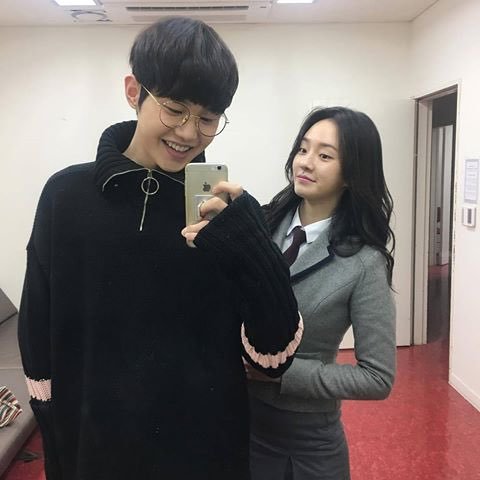
as Baek Hyerin in Solomon's Perjury, 2016
2 notes
·
View notes
Photo

Ahn Nae-sang Kyeon Mi-ri and Park Ki-woong (Pandora)
#Pandora: Beneath the Paradise#Park Ki-woong#Paradise#Kyeon Mi-ri#Pandora#Hong Yu-ra#Jang Hee-jin#Lee Keum-jo#Lee Ji-ah#Falsify#Han Soo-yeon#Yura#Lee Sang-yoon#Min Young-hui#Bong Tae-gyu
0 notes
Text
"Kim Dokja's breaths, his appearance, his laughter, and his manner of speech [...] And...
The glint in his eyes when he recalls the story he loves.
[...] 'I can just read from the beginning again'.
-CH. 438
(music cr: Train to Busan OST "Goodbye World" by Jang Young Gyu)
1K notes
·
View notes
Text

IT’S OKAY TO NOT BE OKAY // KDRAMA DİZİ YORUMU
UYARI : Yazılar genel olarak spoiler içerebilir. İçermeyedebilir.
İmdb puanı: 8,6
Benim puanım: 10
Drama: It’s Okay to Not Be Okay / Psycho But It's Okay
Hangul: 사이코지만 괜찮아
Director: Park Shin-Woo
Writer: Jo Yong
Episodes: 16
Date: 2020
Language: Korean
Country: South Korea
Cast : Kim Soo-Hyun , Seo Ye-Ji, Oh Jung-Se , Park Gyu-Young, Kim Ju-Hun, Jang Young-Nam, Kim Mi-Kyung, Kim Chang-Wan, Kang Ki-Doong
2021 (57th) BaekSang Arts Awards - May 13, 2021
Best Supporting Actor (Oh Jung-Se)
Art Award
Uzun zamandır listemde olmasına rağmen sığ ve bunalım bir aşk hikayesini anlattığını düşündüğüm için izlemeye elim gitmiyordu. Oylanma oranı ve puanı yüksek olduğu için listemden çıkartmaya da kıyamıyordum. Diğer yandan başroldeki Kim Soo Hyun 'un Kore sinemasında bu kadar ünlü bir oyuncu olmasına da pek anlam veremiyordum. Sonuç olarak bir şekilde diziye başladım.
İtiraf etmeliyim ki kelimenin tam anlamı ile büyülendim. 1. bölümün sonunda, neden olduğunu bilmediğim şekilde dizinin hikayesine kolumu, bacağımı, kendimi kaptırmış gibi hissettim. Sanki bir masal dünyasına izinsiz adım atmış gibiydim. Karakterlerin her biri Tim Burton'a el sallayarak sahneye çıkıyorlardı. Her birinde coşkulu ve ölçülü bir aura vardı. Asla nedenini anlayamadığım bir heyecanla izlemeye devam ettim.
Dizide üç yalnız insanın yollarının kesişmesi masal gibi anlatılıyor. Ko Mun Yeong (Seo Yea Ji); İnsanlardan bağımsız yaşayan, gotik havası ile herkesin çekindiği bir çocuk kitabı yazarı. Moon Kang Tae (Kim Soo Hyun), 10 yıl içerisinde 15 hastane değiştirmiş psikiyatri kliniğinde hasta bakıcı. Moon Sang Tae (Oh Jung Se), Kang tae'nin zihinsel engelli abisi. Bu üçünün bir arada olduğu sahnelerin birçoğu tablo gibiydi. Çekimler ve hikâye anlatımı ise o kadar lezzetliydi ki, diziyi izlerken doyduğumu hissettim.
Her bölüm klasik olarak bildiğimiz peri masalları ile başlayıp, farklı yorumlanması ile tamamlandı. Bir masal dünyasının kapısından içeri adımımı attım ve kendimi Charlie'nin çikolata fabrikasına ilk kez adım atan bir çocuk gibi hissettim. Masalların ve hikayelerin dizinin içinde yorumlanışları, karakterlerin hikayelerden çıkarımları ve izleyiciye yansıtma şekilleri muazzamdı. İlk başta dizinin sığ ve bunalım olduğunu düşündüğüm için kendime çok kızdım. Bütün romantik detaylar bile o kadar incelikle işlenmiş ki, klasik Kore dizilerinden fersah fersah sıyrılıyor.
Sadece ana karakterler değil dizideki bütün karakterler için hikayeler incelikle yazılmış. Her karakterin kendi travması ile yüzleşmesi ve üzerinden gelme çabasını çok başarılı anlatıyor. Hiçbir oyuncu ve karakter diziye fazla ya da abartı değildi. Oyuncuların içtenliği ve profesyonelliği su götürmezdi. Oyuncuların yanı sıra, yönetmenden senariste bütün ekip çok başarılıydı. Dizinin çekimleri, kullanılan mekanlar, kıyafet seçimleri, diyaloglar gerçekten beni büyüledi.
Dizinin konusu için bir iyileşme yolculuğu diyebiliriz. Karakterlerin birbirlerinin yaralarını sarmasını, kendi travmalarını fark etmelerini izleyiciye çok doğal aktarmışlar. Özellikle Moon Sang Tae karakterini canlandıran Oh Jung Se, inanılmaz bir performans sergiledi. Kesinlikle önünde eğiliyorum. Ko Mun Yeong karakterinin insan hislerini hiç öğrenmemiş bir çocuk olması ve her yeni duyguda teyit etmek istemesi çok tatlı bir detaydı. Onunla; birini sevmenin ne demek olduğunu öğrenmesini gözlerim dolarak izledim.
Hikaye boyunca karakter gelişimlerini parmakla gösterebilirim. Hiçbir tutarsızlık yoktu. İlk saniyede izleyiciye verdikleri dark hava ve grotesk atmosfer son bölüme kadar havasını hiç bozmadı. Sezon boyunca dizi yalnızlıktan beslenerek ve doyarak noktayı koydu. Benim en çok hoşuma giden şeylerden biri de Moon Mang Tae ismini verdikleri bez bebek oldu. Yükledikleri anlam gerçekten güzeldi.
Eleştirmem gerekiyor ise, beni rahatsız eden yalnızca iki nokta oldu. Birincisi, Ko Mun Yeong karakterinin bütün sezon boyunca makyajının bozulmamış olmasıydı. Yağmurda, çamurda, uyurken, ağlarken hep porselen bebek gibiydi. En azından 1-2 kere de olsa keşke makyajsız görseydik. İkincisi ise, Ko Mun Yeong'un annesinin hikayesi. Ölmediğini ve hikayeye bir yerinden dahil olacağını bekliyorduk ama gösterdikleri o ölüm sahnesinden nasıl kurtulduğunu hiç anlatmadı. O durumdan kurtulabilmesi çok mantıklı değildi.
Yine de sonuç olarak, izlediğim şeyden o kadar memnun kaldım ve beni o kadar tatmin etti ki, mantıksız bulduğum bu iki noktanın da üzerinde hiç durmadım. Dizi bittiği için resmen içim burkuldu. Ama söylemeden de geçemeyeceğim, izlediğim onca Kore dizisi arasında gerçekten tatmin edici sona sahip tek dizi olabilir. Başından sonuna kadar hikayesinin arkasında durup gereksiz detaylar ile izleyiciyi hiç boğmadı.
İmza etkinliğinde Ko Moon-Young'un korumacı tavrı, abinin karavan almak isteme sebebi, birbirlerini hatırladıklarını itiraf ettikleri sahne, Ko Moon-Young'un kabus görüp ağlaması, Moon Mang Tae için kavga ettikleri sahne, Ko Moon-Young'un doğum gününde dizilerin kadrolu annesi Kang Soon-Duk'tan yosun çorbası istemesi, Ko Moon-Young'un Moon Sang Tae'den onunda abisi olmasını istemesi diziden sonra uzunca bir süre aklımdan çıkmayacak sahneler arasında olacak. Abi her ne kadar otizmli olsa da kardeşinin ve Ko Moon-Young’un ona gerçekten bir abiye ihtiyaç duyarak yaklaşmaları çok derin düşünülmüş detaylardı. Engelli olmasından dolayı onu eylemiyor, gerçekten içlerindeki abi ihtiyacını onunla dolduruyorlardı.
Ayrıca dizi içinde geçen masallar ve hikayeler hem konuyu hem karakterleri çok güzel tamamlıyordu. Bence en güzeli Yalancı Çoban hikayesini anlatma sahnesiydi. Bütün herkesin sımsıkı sarıldığı yalnızlıklarını nokta atışı özetliyordu.
Sonuç olarak; oyuncuların birbirine çok yakıştığı, hikayesi doldu dolu, anlatmak istediğini izleyiciye geçiren bir dizi olmuş. Bu kadar övgüyü ve puanı kesinlikle sonuna kadar hakkediyor.
OST:
Janet Suhh - In Silence
Janet Suhh - Lighting up your world
Raven Melus
BAŞKA NELER VAR ?
FOTOĞRAFLAR
#It’s Okay to Not Be Okay#dizi#kdrama#eleştiri#yorum#inceleme#Kim Soo-Hyun#Seo Ye-Ji#Oh Jung-Se#Park Gyu-Young#Kim Ju-Hun#Jang Young-Nam#Kim Mi-Kyung#Kim Chang-Wan#Kang Ki-Doong
1 note
·
View note
Text
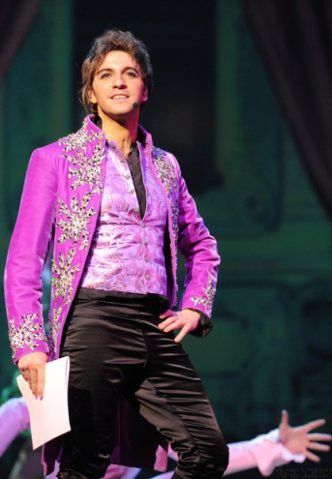

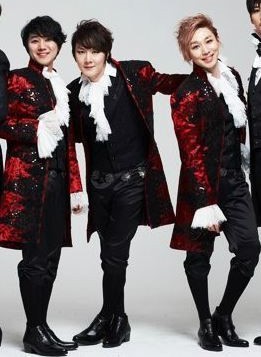
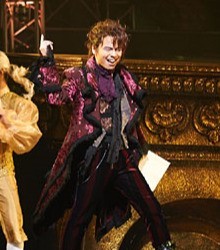
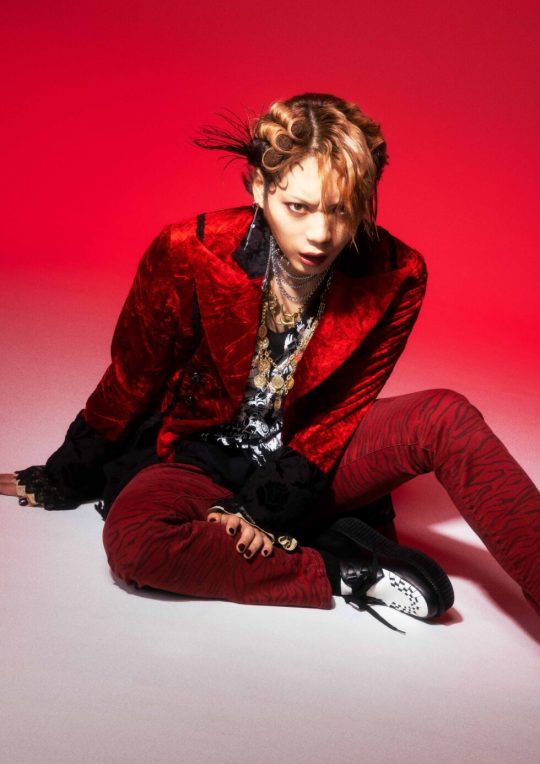
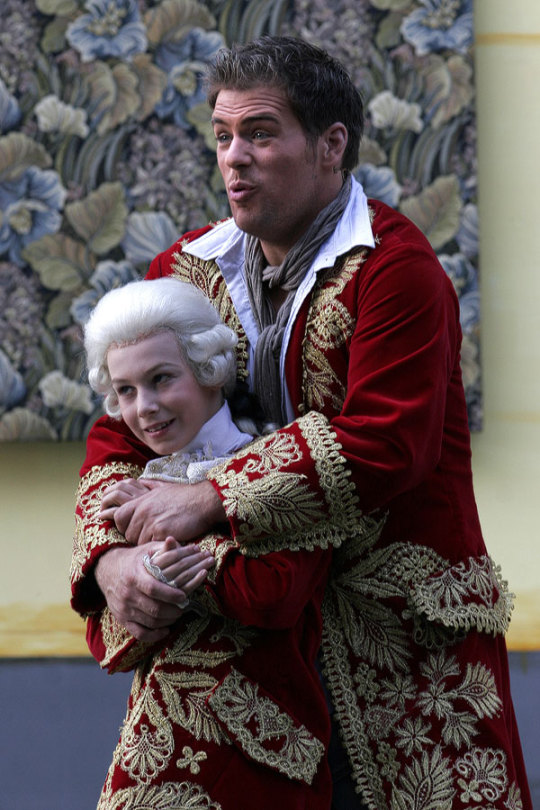
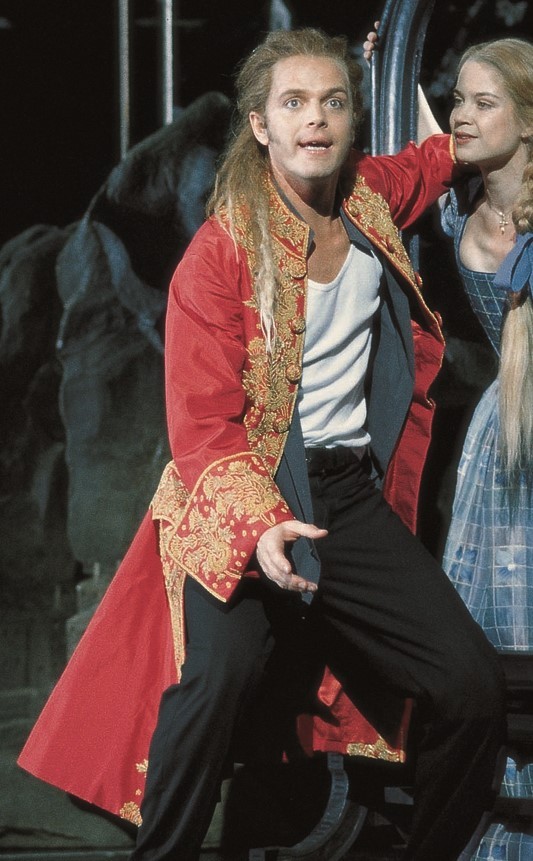

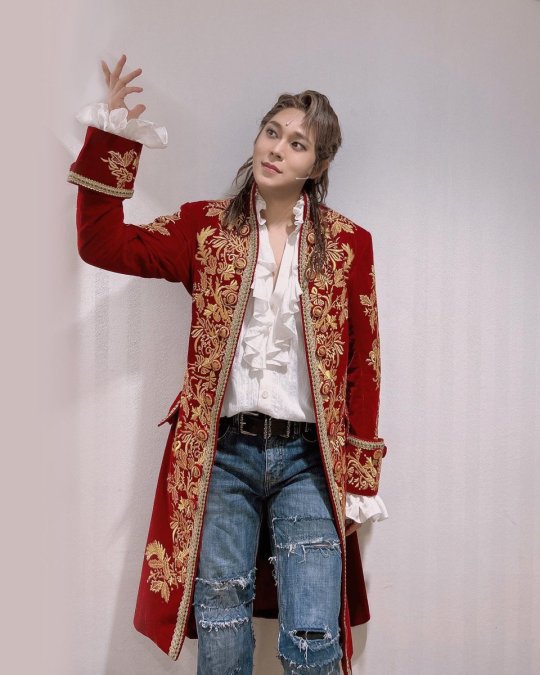


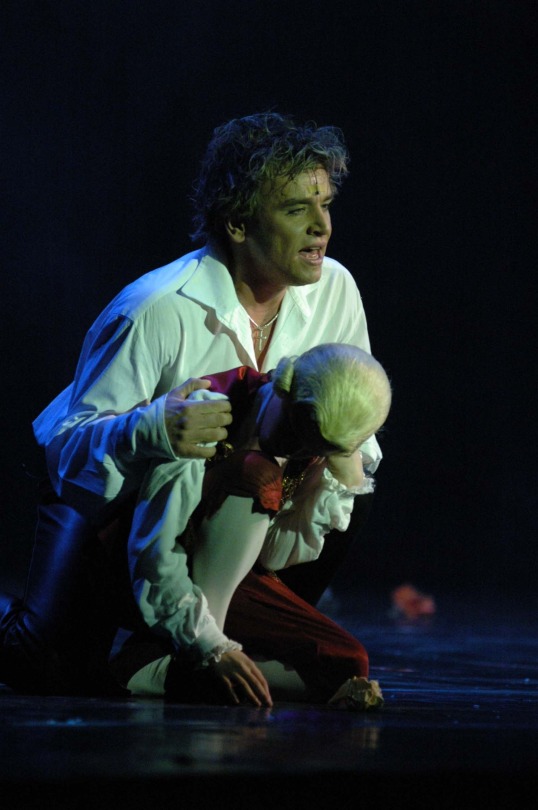
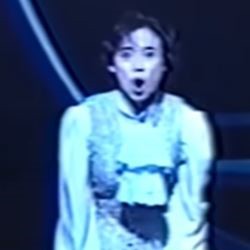
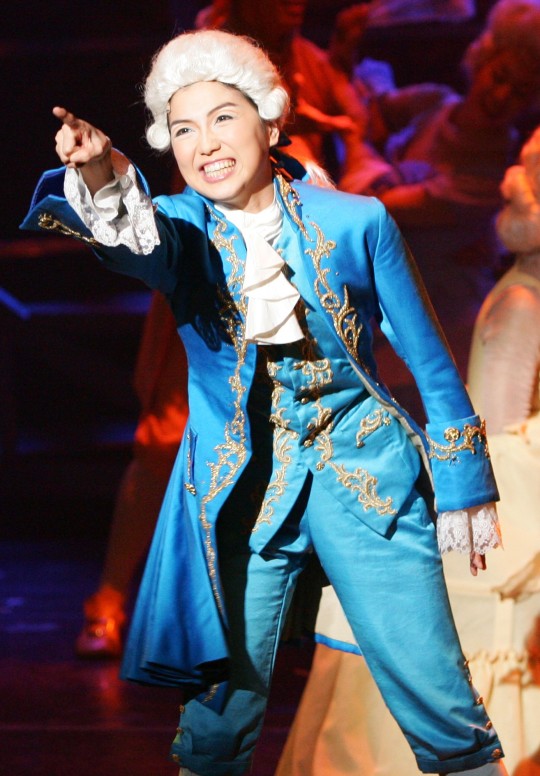


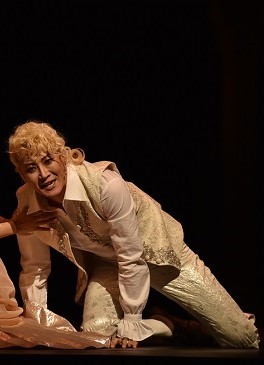
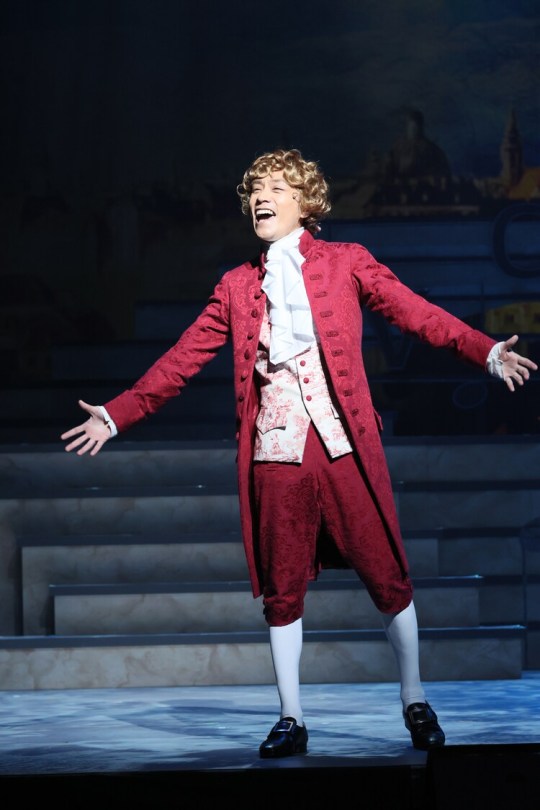
Wow I really like that one musical with Wolfgang Amadeus Mozart
Loconte, Mikelangelo (Mozart L'opera Rock), Rei, Makoto (Mozart L'opera Rock 2019 Takarazuka), Park, Han Keun + Kou, Yo-Jin + Kim, Ho-young (Mozart L'opera Rock 2012 Kr)
Nakagawa, Akinori (Mozart L'opera Rock 2013 Jp), Sato, Ryuji (Nigero! Mozart no Daihon Sakusha 2023), Stanke, Patrick (Mozart! 2008 Tecklenburg)
Romdal, Yngve Gasoy (Mozart! 1999 Wien), Yamazaki, Ikusaburo + Furukawa, Yuta (Mozart! 2021 Jp), Lee Hae-jun (Mozart! 2023 Kr)
Slanina, Aleš (Mozart! Czech 2009), Kuipers, Odeo (Mozart! 2015-16 Wien), Dolhai, Attila (Mozart! Budepest 2003)
Doi, Yuuko (Madamoiselle Mozart 1991?), Niizuma, Seiko (21 C: Mademoiselle Mozart 2005), Rio, Asumi (Mademoiselle Mozart 2023)
Park, Yoo-duk (Salieri 2014), Hur Gyu? (Salieri 2016) Hirama, Soichi (Da Ponte: Mozart no Kage ni Kakureta mou Hitori no Tensei 2023)
Bonus Cast Info: While I'm still not super knowledgeable of Mademoiselle Mozart, I do know more about the Kr and Jp Mozart! and Mor Mozart casting.
Mozart l'Opera Rock Jp
Nakagawa Akinori and Yamamoto Koji
Mozart! Jp
2002+05+07: Nakagawa Akinori, Inoue Yoshio
2010-11+2014-15: Inoue Yoshio, Yamazaki Ikusaburo
2018+21: Yamazaki Ikusaburo, Furukawa Yuta
2024: Furukawa Yuta, Kyomoto Taiga
Mozart! Kr
2010: Im Taekyung, Park Gun-Hyung, Park Eun-Tae, Kim Junsu
2011: Im Taekyung, Jeon Dong-seok, Park Eun-Tae, Kim Junsu
2012: Im Taekyung, Jang Hyun-seung, Park Eun-Tae
2014: Im Taekyung, Park Hyo-shin, Park Eun-Tae
2016: Lee Jee Hoon, Jeon Dong-seok, Kyuhyun
2020: Park Kang Hyun, Park Eun-Tae, Kim Junsu
2023: Lee Hae-jun, Suho, Yoo Hwe-seung, Kim Hee Jae
#I'm sure there is more#but for now#wolfgang amadeus mozart#mozart l'opera rock#mozart!#mozart! das musical#Mademoiselle Mozart#21 C: Mademoiselle Mozart#Da Ponte Mozart no Kage ni Kakureta mou Hitori no Tensei#Lorenzo da ponte#Nigero! Mozart no Daihon Sakusha#mikelangelo loconte#Park han keun#kou yo-jin#kim ho-young#sato ryuji#ryuji sato#rei makoto#hirama souichi#yamazaki ikusaburo#nakagawa akinori#Yngve gasoy romdal#furukawa yuta#oedo kuipers#lee hae-jun#Aleš slanina#park yoo-duk#hur gyu#doi yuuko#dolhai attila
62 notes
·
View notes
Text
Upcoming Kdrama February 2023 🧡
6/2: Our Blooming Youth with Park Hyung Shik, Jeon So Ni, Pyo Ye Jin. 20 episodes; historical, mystery, romance. Trailer
10/2: Love to Hate You with Kim Ok Bin, Yoo Teo, Kim Ji Hoon. 10 episodes; rom-com. Trailer
15/2: The Heavenly Idol with Park Min Gyu, Go Bo Gyul, Lee Jang Woo. 12 episodes; rom-com, fantasy. Trailer
17/2: Taxi Driver 2 with Lee Je Hoon, Pyo Ye Jin, Shin Jae Ha. 16 episodes; action, thriller. Trailer
22/2: Call it Love with Kim Young Kwang, Lee Sung Kyung, Sung Joon. 16 episodes; romance, melodrama. Trailer
24/2: Island part 2 with Kim Nam Gil, Cha Eun Woo, Lee Da Hee. 6 episodes; horror, fantasy.
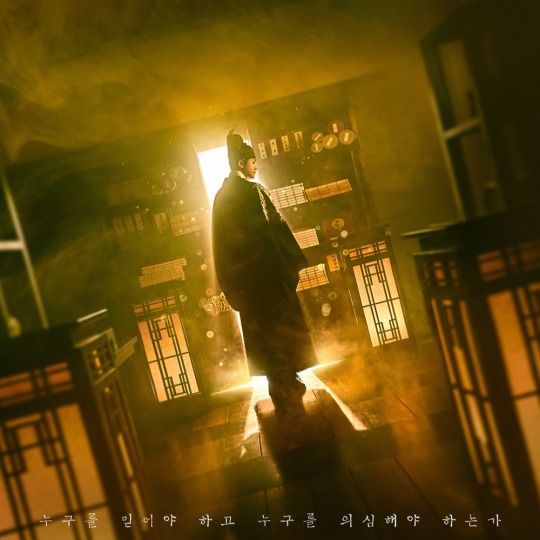
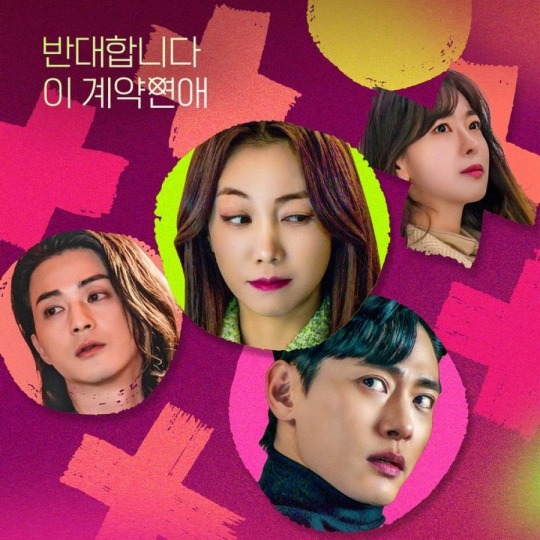
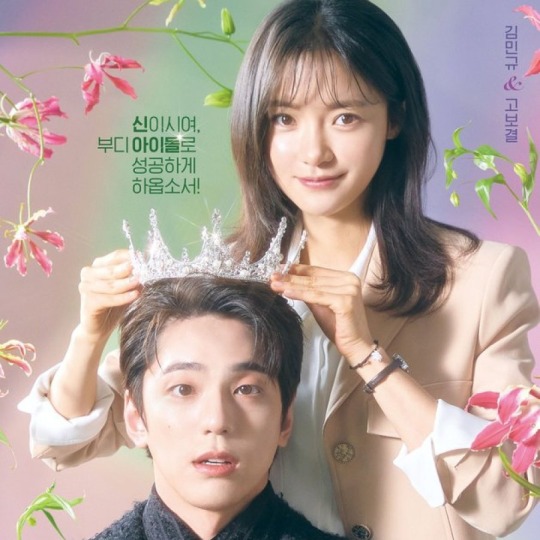
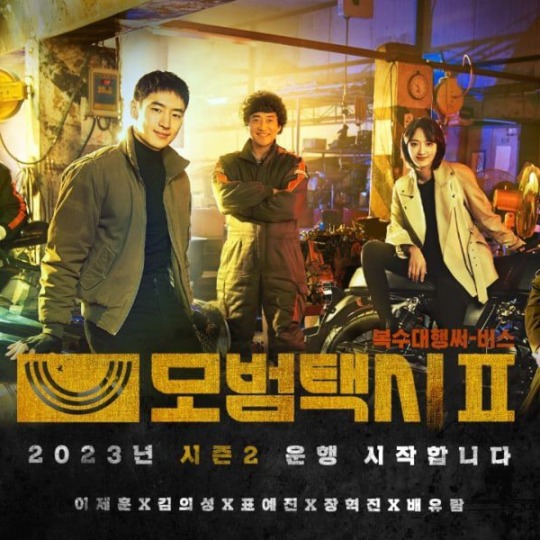


My fav taxi driver is coming back! 😍
#kdrama#upcoming kdrama#february#our blooming youth#park hyung shik#love to hate you#kim ok bin#yoo teo#kim ji hoon#the heavenly idol#park min gyu#taxi driver#taxi driver season 2#lee je hoon#pyo ye jin#call it love#kim young kwang#lee sung kyung#sung joon#tving island#tving island part 2#kim nam gil#cha eun woo
260 notes
·
View notes
Text
Mystic Messenger Voice Actors 🎤
(Main Cast)
Hyun Ryu (Zen) + Chairman Kim (V's father)
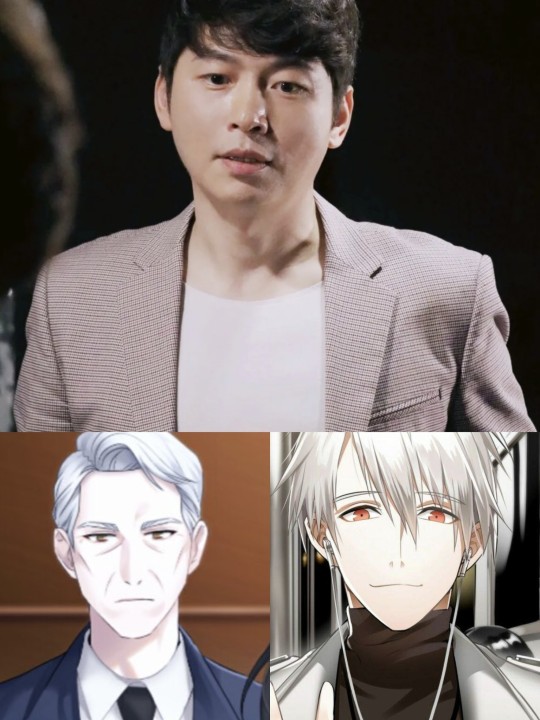
Name: Kim Jang
Age: 53
Yoosung Kim☆ + Saejoong Choi (Twin's father/Prime Minister)
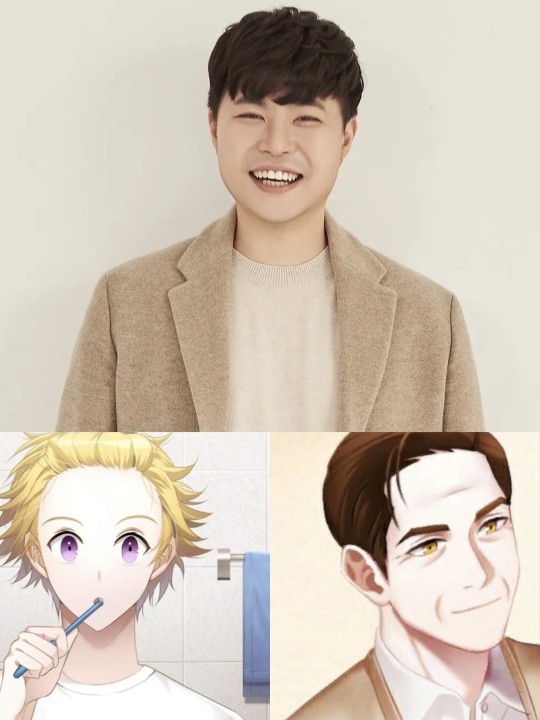
Name: Shim Gyu-Hyeok
Age: 41
Jaehee Kang + Rika's stepmother
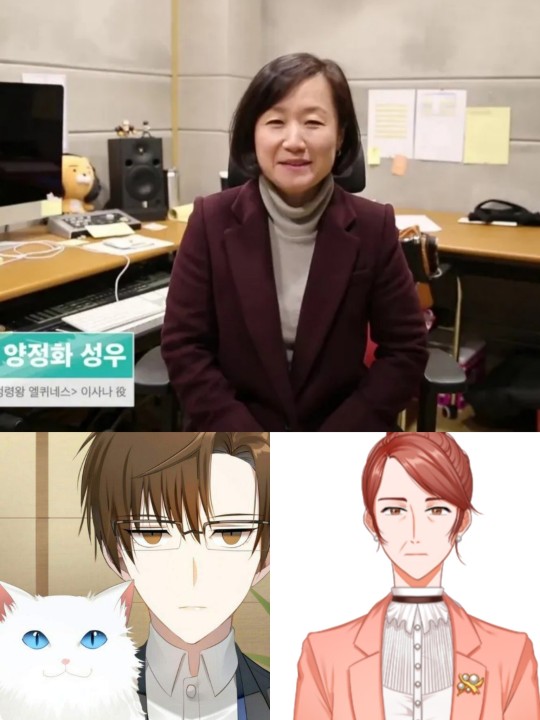
Name: Jang Jeong-Hwa
Age: 52
Jumin Han
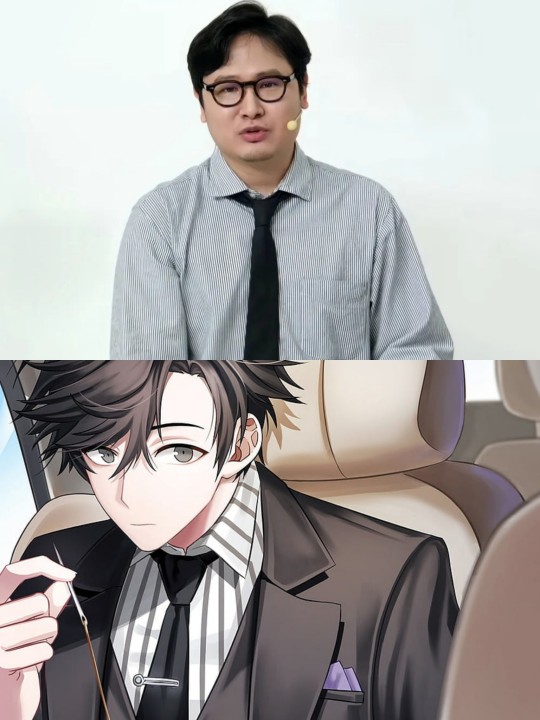
Name: Shin Yong-Woo
Age: 47
Saeyoung Choi (707)

Name: Kim Young-Sun
Age: 53
Jihyun Kim (V)
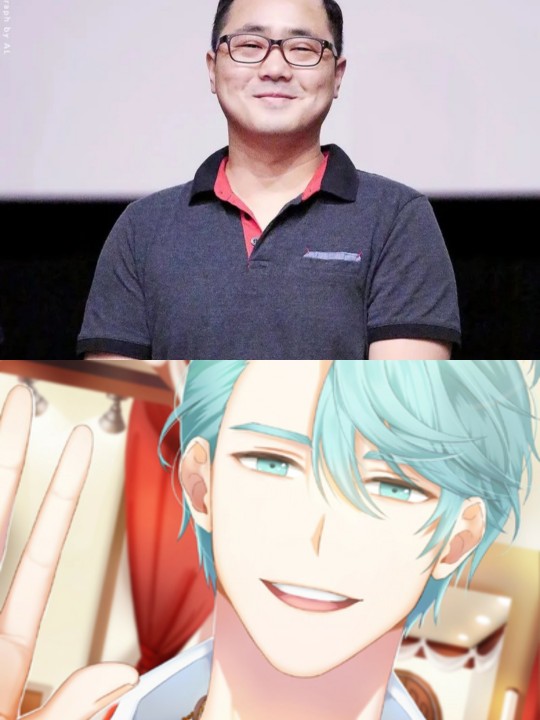
Name: Lee Ho-San
Age: 42
Saeran Choi (Unknown/Ray)
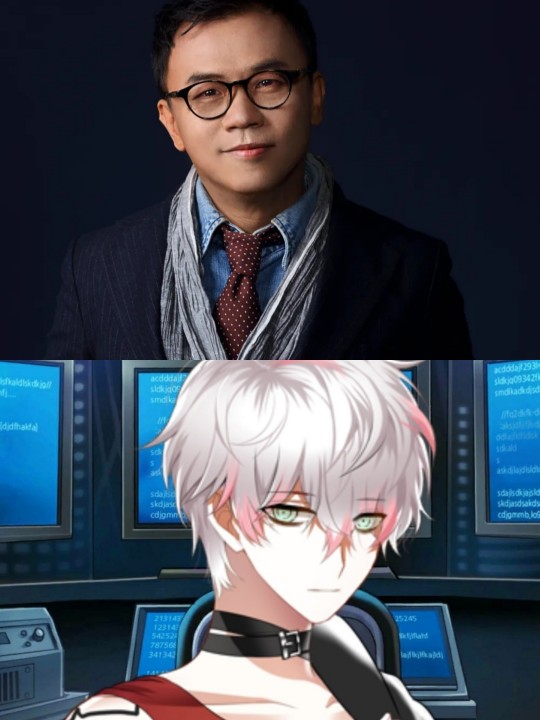
Name: Kang Soo-jin
Age: 57
Rika
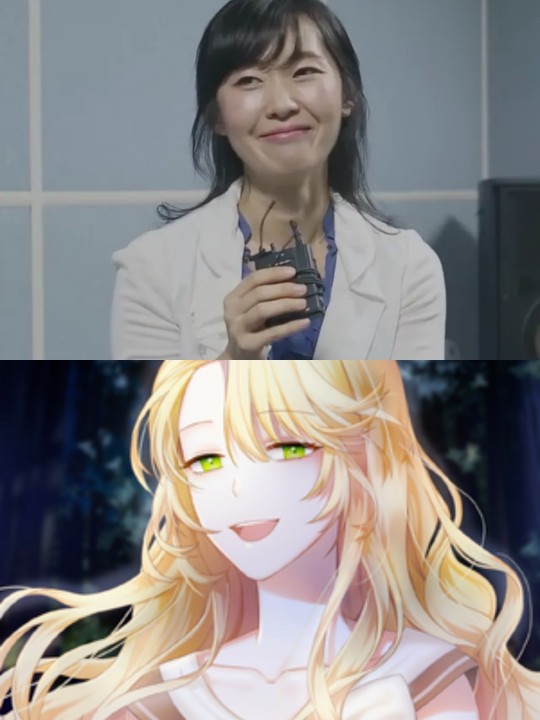
Name: Lee Hyeon-Jin
Age: 50
Mary Vanderwood 3rd + Chairman Han (Jumin's father) + Boss (Ray AE) + Almost all minor male characters
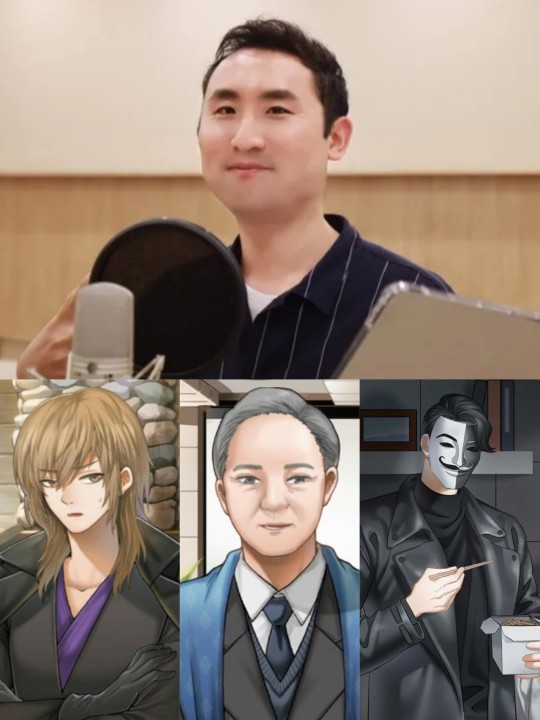
Name: Lee Gyu-chang
Age: 41
(supporting characters VAs)
#mystic messenger#Mystic Messenger voice actors#saeran choi#saeyoung choi#jumin han#Ryun hyu#zen mystic messenger#Jihyun Kim#vanderwood#Rika#Jaehee Kang#Yoosung Kim#mystic messenger 707#unknown mystic messenger#v mystic messenger#mary vanderwood 3rd#ray mystic messenger#cheritz
96 notes
·
View notes
Text
The History of Korean Male Groups – From Yeonhee Professional Singers’ Quartet to BTS -> Pt. 5/? (Rewrite)
I am quite surprised by the limited information available regarding this male group, which is known by two different names. I will endeavour to clarify the situation; the group in question is referred to as either 'Arirang Boys' (아리랑보이즈는) or 'Joseon Music Troupe' (조선악극단). It remains unclear why they operated under these two names.
This situation is reminiscent of the male groups 'Yeonhee Professional Quartet' (연희전문사중창단) and 'Youth Member' (청년회원), where the former has significantly more information available compared to the later.
Before Liberation – 1940s
Prior to delving deeper, I would like to clarify my approach to discussing this male group, which predates the liberation era and thus had limited information available, similar to my previous post regarding the first two male groups (Part 2). I will first outline the group and its members, followed by the company they were associated with.
Additionally, I will mention the 'Jeogori Sisters,' who were part of the same company as the 'Arirang Boys,' noting that one member from each group is a married couple. However, I will refrain from providing extensive details about the 'Jeogori Sisters' as they will be addressed in a future post within The History of Korean Girl Groups.
The Arirang Boys (아리랑보이즈는), a four-member project group, emerged around 1940 and frequently performed alongside the Jeogori Sisters, a female ensemble featuring Lee Nan-young (이난영), Jang Se-jeong (장세정), Kim Neung-ja (김능자), Lee Jun-hee (이준희), and Seo Bong-hee (서봉희). The group comprised Kim Hae-song (김해송), a singer and composer married to Lee Nan-young, composer Park Si-chun (박시춘), comedian Lee Bok-bon (이복본) known for his jazz performances, and composer-arranger Song Hee-sun (송희선). Additionally, Hyun Kyung-seop (현경섭), a trumpet player for an orchestra record company, occasionally filled in for other members.

In no particular order, members of Arirang Boys: Kim Hae-song (김해송), Park Si-chun (박시춘), Lee Bok-bon (이복본), Song Hee-sun (송희선) and Hyun Kyung-seop (현경섭) who occasionally filled in for other members.
Despite not releasing any albums, they achieved popularity through their use of instruments like the guitar and violin, enhancing their stage performances. According to singer Kim Jeong-gu's (김정구) testimony prior to his death, the Arirang Boys were particularly cherished for their comedic interludes during shows.
The Arirang Boys Members:
I will briefly talk about the ‘Arirang Boys’ members here but will go into detail about them separately in future posts.
Kim Hae-song (김해송)

A few other photos of him here.
Kim Hae-song, whose real name was Kim Song-gyu (金松奎) and Japanese name Kyouya Kobayashi (金山松夫), was born in December 1911 in Gaecheon, Pyeongannam-do, during the Japanese colonial era, and he passed away around 1950 at approximately 39 or 40 years of age. It is believed that he remained in Seoul throughout the Korean War and died while being abducted to North Korea.
A multifaceted artist, he was a composer, singer, lyricist, guitarist, and musical director, active from 1935 to 1950. He graduated from Pyongyang Gwangseong High School in 1933, and although there are unverified claims of his attendance at Sungsil College and Jochi University in Japan, these remain unconfirmed. In 1935, he signed with Okeh Records, marking the beginning of his career as a singer and composer.
Lee Bok-bon (이복본)

Lee Bok-bon (李福本), born in Seoul in 1911 and died around 1950?, he was a singer from Joseon and South Korea . He first appeared on the stage of Joseon Theater Company in 1933 and appeared in director Ahn Jong-hwa's (안종화) film 'Crossroads of Youth' (청춘의 십자로) in 1934. He is also called "Korea's first jazz singer" as a member of the Seoul theater company 'Mooran Rouge'. However, during the Korean War, he was kidnapped by the North Korean People's Army during the Battle of Seoul and disappeared thereafter, and is presumed to have died.
Park Si-chun (박시춘)

A few other photos him and information but nothing new here.
Park Si-chun, real name Park Soon-dong (박순동; 朴順東) was born on October 28, 1913, in Miryang, South Korea, was a versatile artist who passed away on June 30, 1996, at 82. His talents included music composition, guitar, and proficiency in instruments like the trumpet, violin, and saxophone. He also worked in the film industry as an actor, director, producer, and music director.
One of his notable works is the pro-Japanese song "Blood Letter Support," which expresses a desire to serve as a volunteer soldier during the Pacific War. The lyrics, by Jo Myeong-am, reflect strong pro-Japanese sentiments. In 2008, he was recognized as a pro-Japanese figure by the Institute for Research in Collaborationist Activities, and a festival honouring him sparked controversy. He was also listed among 705 pro-Japanese anti-nationalists by the Truth and Reconciliation Commission in 2009.
Song Hee-sun (송희선)
I’m not shore which person in the photo shown above is Song Hee-Sun, but I hope this information that I found on him even though it a lot, is the wright Song Hee-sun.
The birth and death dates of Song Hee-sun remain unknown. He began his music education at Sungsil High School in Pyongyang and later ventured into the Japanese light music scene, establishing himself as a saxophonist and subsequently performing with OK Grand Shodan.
His notable contributions include musical dramas like "Dongyang no Rose" (동양의 장미) and "Golden Come Out Ttuktak," (금 나와라 뚝딱) as well as the song "The Young Days of the Sea" (바다의 젊은 날). Additionally, the arrangements he created for Lee Hwa-ja (이화자) during the Japanese colonial era are featured on the Oke album.
Hyun Kyung-seop (현경섭)
I’m not shore which person in the photo shown above is Hyun Kyung-seop, he might not be in the photo because he was occasionally filled in for other members at the time.While I was looking into Hun Kyung-seop I found this blog about him, that the National Museum of Korean History published a collection of Hyun Kyun-seop.As there is little information that I could find I’m going to add all the information here, but i will post him and other members' information separately in the future.

The National Museum of Korean History has published a collection featuring 267 artifacts related to Hyun Kyung-seop, a prominent trumpet player associated with Oke Records during the Japanese colonial era. This collection encompasses photographs of Hyun Kyung-seop and his personal diaries, providing insight into his life during this tumultuous period. Despite his significant contributions to music, particularly as a key member of the Joseon Music Troupe, Hyun Kyung-seop remains largely unremembered by contemporary audiences.
Beginning his career at the age of 22 in 1935, Hyun Kyung-seop gained recognition for his performances in Japan and China, with media outlets even comparing him to the legendary Louis Armstrong. His versatility extended beyond trumpet playing to include arranging, acting, dancing, and singing. However, his life took a tragic turn during the Korean War when he was abducted by North Korean soldiers in Seoul, leading to a prolonged absence that left his family in distress. Despite efforts by his son, Hyun-won, to locate him, including a DNA test through the Red Cross, the family faced numerous hardships due to the stigma associated with his disappearance, which severely restricted their opportunities and freedoms.

Hyun Kyun-seop playing the trumpet in the middle.
This compilation encompasses original images from each day of Hyun Kyung-seop’s diary, a variety of identification documents, photographs of his music colleagues, and all phonograph records he possessed, which have been digitally restored and compiled onto a DVD.
However, these DVDs are currently unavailable for access to my knowledge.
The once-obscure trumpet player Hyun Kyung-seop, who nearly faded from historical memory following his performance at the Seoul Geukdo Theatre in June 1950, has been immortalized through a collection published by the National Museum of Korean History. Transitioning from anonymity to becoming a symbol of the Japanese colonial era and the post-liberation music scene, this collection, made possible by the contributions of his family and the museum's restoration efforts, serves as a crucial resource for understanding the evolution of popular music in Korea.
Okeh Records (오케레코드):
Oke and Okeh Records are the same company. The photos shown below are people that worked for or with Okeh Records, and were attached with the information that I found of the company.
Founded in the early 1930s, Okeh Records highlighted diverse talents from Korea and Japan. Despite facing censorship and limitations, the label effectively developed around six notable groups, producing music films and establishing the Orchestration Team, Orchestra Music 'n Dance Research Institute, while managing Okestudio and theatres both domestically and internationally. The label also toured extensively across Korea, Japan, and Northern Asia, and created military songs. Although Okeh ceased its activities due to the Pacific War, its substantial yet often overlooked influence laid an essential groundwork for future artists following liberation.
Oke Records, a South Korean record label, was operational both prior to and following the country's liberation. The name "Okeh" derives from the Japanese pronunciation of the English term "Okay," and it is represented in the alphabet as 'Okeh.'
Founded in 1932, the exact date and conditions of its inception are not well-documented; however, the celebration of the '15th Anniversary of the Joseon Musical Troupe' (조선악극단) in April 1947 implies that the organization may have been established around April 1932.

Okeh Records was the latest addition to the five major record companies active during the Japanese colonial period, which included Columbia Records, Victor Records, Polydol Records, and Taepyeong Records, all of which ceased operations by 1943, coinciding with the end of the Pacific War. Despite being the last to enter the market, Okeh Records achieved notable success, becoming the second-largest producer of records and playing a crucial role in promoting many of the era's most prominent artists and songs.
Initially, the company was known as the Japanese Okeh Gramophone Company Gyeongseong Temporary Sales Office, later rebranded as the Gyeongseong Branch. The management was overseen by a Korean named Lee Cheol, although information regarding the company's financial structure is scarce. It is clear that Okeh Records depended on Japan's Teichiku Records for its recording and pressing operations, indicating a significant initial partnership with Teichiku. A theory suggests that Lee Cheol's wife, Hyeon Song-ja, had a school friend whose father was an executive at Teichiku Records, which may have aided in the branch's establishment; however, this connection remains unverified.

Okeh Records launched its first album in February 1933 and maintained an active production schedule for approximately 11 years, concluding around late 1943 or early 1944. It ranked second in the volume of new album releases, following Columbia Records, and played a pivotal role in the popular music industry, significantly outpacing its rivals. Initially, the company operated from the Japanese Deichiku Records studio until early 1936, after which it established its own recording facilities in Gyeongseong (Seoul) by late 1936, marking the beginning of its Gyeongseong recording era.
From its inception, Okeh Records prioritized stage performances and album production, featuring one of the finest bands of the time. The company distinguished itself by ensuring that all arrangements and accompaniments for popular music were performed by Korean musicians as Gyeongseong recording evolved. In 1937, Teichiku Records appointed Imura Ryozui as branch manager, taking over the operational rights from Lee Cheol, which led to the rebranding of the company as Teichiku Records Gyeongseong Branch.
Following a fire in January 1941, plans for a new office building were set in motion, resulting in a facility with studios completed by mid-May. Although the precise date of Okeh Records' final album release remains uncertain, it is believed that production continued until late 1943, with operations effectively ceasing in 1944 after the withdrawal of Japanese capital post-liberation. The reestablishment of Okeh Records in August 1948, highlighted by albums such as “Cry Silver Bell,” signified a new entity while honouring the legacy of the original Okeh Records.
Okegrand Show (오케그랜드쇼)
Since its inaugural album release in 1933, Okeh Records had prioritized stage performances, featuring a performance group known as the "Okeh Ensemble," (오케 앙상블) which consisted of artists exclusive to the label and toured extensively across the country, Japan, and Manchuria during recording intervals.
The transition of Okeh Ensemble into the Okeh Grand Show occurred when the operational rights of Okeh Records were transferred from Lee Cheol to Imura Ryozui, who had been sent from Japan's Teichiku Records post-1937.

Group of women that worked in Okeh Records.
Not shore when this photo was taken probably around 1940s, and the name of the women are in the photo.
Following this shift, Lee Cheol, facing limitations on his decision-making in the recording industry, founded the Joseon Entertainment Company (initially named Joseon Recording Company) in January 1938, thereby venturing into a new domain of stage performances.
This evolution led to the reformation of the traditional orchestra into the Orchestra Grand Show, which emerged as the premier performing group in Joseon, eventually evolving into the ‘Joseon Musical Troupe’ (조선악극단) after its inaugural tour of Japan in 1939.
Orchestration Team (오케싱잉팀)
As the Joseon Akgeukdan expanded and managing multiple schedules became increasingly challenging, a sister group was established to split the performances into two factions, concentrating on popular music. This led to the formation of the Okesinging Team.


Both Photos - Not shore the name of the two ladies but both worked with Okeh Records.
Note shore when both of these photo’s was taken, probably around 1940s.
The Okesinging (오케싱잉) Team, or Okegayodan (오케가요단), made its debut in June 1940, showcasing prominent artists from Okerecord, such as Lee Nan-young, Nam In-su, and Lee Hwa-ja. Despite its formal designation as a distinct entity, the Okesinging Team frequently performed alongside the Joseon Akgeukdan during events. Active until 1941, the Okesinging Team focused on musical performances before entering a brief hiatus. In 1943, it rebranded as the Shinseng Theatre Group (신생극단), broadening its repertoire beyond music and re-emerging on stage.
Orchestra Music and Dance Research Institute (오케음악무용연구소)
Akgeuk and Akgeukdan are the ‘Joseon Musical Troup’, I’m not shore why they are written as Akgeuk or Akgeukdan.
The Okeh Music and Dance Research Institute, founded by Lee Cheol (이철), who also established the Joseon Entertainment Company and led the ‘Joseon Musical Troupe’ (조선악극단), aimed to continuously identify and cultivate talent in popular arts, marking it as the first specialized educational institution for this field in history. Established in September 1940, the institute was directed by Lee Cheol, supported by a faculty of 13 professors from diverse disciplines who provided rigorous education to carefully selected students. Notable faculty members included Kim Hyeong-rae (김형래) in music, along with Kim Min-ja (김민자), Jo Yeong-suk (조영숙), and Lee Jun-hee (이준희) in dance.

This photo was taken in 1943 after the ‘Joseon Musical Troupe’ (조선악극단), the greatest entertainment group of its time, finished a performance in Tokyo to comfort Prince Yeong Chin. It was obtained and made public by Lee Jun-hee (이준희), a visiting professor at Sungkonghoe University (성공회대학교; 聖公會大學校).
English – (1) Prince Yeong Chin (Lee Eun) (2) Princess Yi/ Lee Bang-ja (3) Kim Jeong-gu (4) Jang Se-jeong (5) Lee Nan-yeong (6) Lee Cheol, head of the Joseon Musical Troupe (7) Kim Hae-song (8) Lee Bok-bon (9) Lee Jong-cheol.
Korean – (1) 영친왕(이은) (2) 이방자 (3) 김정구 (4) 장세정 (5) 이난영 (6) 이철 조선악극단장 (7) 김해송 (8) 이복본 (9) 이종철.
In February 1941, the inaugural performance of the first class of cadets, who had trained for approximately six months, took place, with Kim Baek-hee (김백희; 金白姬) emerging as the most distinguished among them; she later became a leading figure in musical theatre following Korea's liberation. By April 1941, an advertisement was released to recruit the second class, establishing an annual selection process for new cadets. These trainees underwent three years of instruction, during which they were not initially compensated but were exempt from tuition and provided with fashionable uniforms. After acquiring sufficient training and skill, they performed as backup dancers or in the chorus for the Joseon Music Troupe, with the most talented individuals given the chance to perform solo by their third year. Those who remained until their third year could earn a significant salary.
Baek Seol-hee (백설희; 白雪姬), who later thrived in musical and popular song genres post-liberation, was part of the third class selected in 1942 and made her solo debut just before graduating in 1944. Alongside Kim Baek-hee and Baek Seol-hee, the Okeh Music and Dance Research Institute nurtured numerous other talents in music and dance, such as Kang Yun-bok (강윤복; 康允福), Shim Yeon-ok (심연옥; 沈蓮玉), and Joo Ri (주리; 朱莉), significantly contributing to the continuation of Lee Cheol's legacy until the 1950s. The Aoi (アオイ) Music Theatre Troupe, a performance group, was established in May 1941.
Similar to the Joseon Music Theatre Troupe, the Joseon Entertainment Company managed the Aoi Music Troupe, which seemingly maintained a strong affiliation with the Okeh Music and Dance Research Institute. The troupe consisted entirely of female newcomers, and the Okeh Institute was the primary source for such talent, indicating a natural collaboration. The term 'Aoi,' which translates to 'blue' in Japanese, likely derives from 'Aoyama,' the surname of Lee Cheol, the leader of the Joseon Entertainment Company.
Following Lee Cheol's death in June 1944, the Okeh Institute rebranded itself as the Cheongsan Music and Dance Research Institute, further linking the name to Lee Cheol. The Aoi Music Troupe made its debut along the Honam Line in late May 1941; however, the absence of subsequent records suggests it may not have achieved commercial success and was likely disbanded. From the perspective of the Joseon Entertainment Company, this initiative can be viewed as a trial endeavour.
The last witness of the 'Joseon Musical Troupe', the life of Kang Yun-bok
This article was published after Kang Yun-bok’s (강윤복) who was a veteran dancer passed away in 2015, and talk about his life who worked for Okeh Records, and like the title says, he was a witness of the ‘Joseon Musical Troupe’ (조선악극단).
I’ll briefly talk about him with the little information i found about him, as for some reason there is little information about him, don’t know why?
Veteran dancer Kang Yun-bok, whose birth name was Kang Yun-deok (강윤복), passed away on May 12, 2015, at the age of 91, due to natural causes.
Born in Pyongyang in 1924, Kang was a prominent member of the Joseon Music Troupe, a notable musical ensemble during the Japanese colonial era, and subsequently performed with the KPK Orchestra under the direction of composer Kim Hae-song, as well as the 8th US Army Show.

Kim Yun-bok during a KPK Orchestra performance in the late 1940s.
The 8th US Army Show thrived from 1953, coinciding with the presence of US forces during the Korean War, until the mid-1960s, when troop levels decreased due to the Vietnam War, and it was instrumental in launching the careers of various stars, including Patty Kim and Bok hee Yoon.
Music critic Park Sung-seo remarked that Kang Yun-bok was the last living member of the Joseon Akgeukdan, the premier popular culture group of the Japanese colonial period, noting that his low public profile has contributed to his obscurity, despite his significant role in the history of popular music.

Kang was married to the late Jeon Hae-nam, a trailblazer in Korean tap dancing, and he is survived by his son Park Jae-bin and daughters Dan-hee, Jin-hee, and Hyeon-hee.
---------------------------------------------------------------------------------------------
In September 1940, a significant milestone occurred in the realm of Korean popular arts with the establishment of the Okeh Music and Dance Research Institute by Lee Cheol, a prominent figure in colonial Joseon's music scene. Lee, who had already made a substantial impact through his work with Okeh Records and the Joseon Music Theatre Company, aimed to cultivate future talent in popular arts through this private educational institution. The institute became a breeding ground for numerous musicians and dancers who gained prominence in the 1940s and 1950s.

Kim Hae-song, Kang Yun-bok, and Joo Ri during a KPK Orchestra performance in the late 1940s.
The inaugural class attracted many teenage girls, who were enticed by the offer of free music, dance, and liberal arts education for three years, with the opportunity to perform on the Joseon Music Theatre Company stage for those who excelled. Ultimately, around 40 students were selected based on their appearance, talent, and growth potential, although the curriculum, which encompassed music theory, vocal training, and diverse dance styles, proved to be quite challenging.
After three years, only nine students graduated from the initial cohort of 40, among whom Kang Yun-bok (1924-2015) emerged as a notable dancer alongside Kim Baek-hee, a vocal music standout. Kang, who passed away on May 12, had initially enrolled at the research institute while attending Sookmyung Girls’ High School, driven by her passion for dance despite her family's strong opposition. Her remarkable talent and dedication soon alleviated her family's concerns, allowing her to flourish in her chosen path.
In April 1941, merely six months after his enrolment at the institute, he made his debut with the ‘Joseon Musical Troupe’ (조선악극단), quickly becoming a prominent member of the ensemble that performed across Korea, Manchuria, Japan, and China. By May 1943, he witnessed Prince Yeong Chin moved to tears by Kim Jeong-gu’s rendition of “Fallen Flowers Three Thousand” at the Prince’s Tokyo residence, and in June 1944, he learned of the unexpected passing of Lee Cheol, the troupe's leader, in Shanghai.

Kang Yun-bok, who appeared in a theatre show in the late 1950s
Following liberation, as the Joseon Akgeuk Troupe began to wane, Mr. Kang Yun-bok transitioned to the KPK Orchestra, which debuted in December 1945. This orchestra, founded by composer Kim Hae-song—a former key member of the Joseon Akgeuk Troupe who had departed earlier—incorporated many of its members, including Mr. Kang Yun-bok, effectively becoming its successor.
While the early 1940s marked the prominence of the Joseon Akgeuk Troupe, the late 1940s signified the rise of the KPK Orchestra. With the burgeoning Akgeuk market, Mr. Kang Yun-bok not only performed with various groups, including the KPK Orchestra, but also emerged as a significant choreographer.

The onset of the Korean War led to the loss of Kim Hae-song, the disbandment of the KPK Orchestra, and a swift decline in Akgeuk; however, Mr. Kang Yun-bok's influence in popular dance expanded during this tumultuous period.
In addition to various performances that supplanted musicals, the U.S. 8th Army Show, which gained momentum in the mid-1950s, and the presence of U.S. troops in Okinawa, Japan, created a demand for Mr. Kang Yun-bok's dance expertise. Furthermore, with the decision to deploy Korean troops to the Vietnam War, the Southeast Asian performance venues also sought his talents.
Beginning in the late 1960s, Kang Yun-bok primarily focused on stage and broadcast choreography while dedicating himself to mentoring future artists. His nearly four-decade career, which concluded in the late 1970s, represents a crucial chapter in the evolution of Korean popular dance. Despite the significant decline of this genre over the years, Kang's contributions extend beyond popular dance, playing a vital role in enriching the broader narrative of modern and contemporary Korean performing arts.

Group of women that worked in Okeh Records.
Not shore when this photo was taken probably around 1940s, and the name of the women are in the photo.
The National Arts Archives has persistently sought Kang Yun-bok's involvement in the ongoing "Oral Recording of Korean Modern and Contemporary Art History" project, initiated in 2003. After several refusals, he finally agreed to participate on the 15th of last month.
Preparations for the project were progressing smoothly, with plans to finalize administrative tasks and commence the official oral recording in early June; however, Kang Yun-bok's unexpected passing occurred before this could take place. The loss of this key figure, who could have provided invaluable insights into the largely unrecognized Chosun Akgeukdan and KPK Orchestra, is profoundly felt.
While it is not uncommon for an individual's death to erase memories of a particular era, the immediate sense of loss in this instance is striking. Nevertheless, Mr. Kang Yun-bok left behind words and materials, and it is hoped that these can be gathered to illuminate the rich history of the past stage performances.
Joseon Musical Troupe's Performance to visit Prince Yeong Chin
This article published in 2010 was about a photo of the ‘Joseon Musical Troup’ visiting Prince Yeong Chin, that was deemed lost or a myth being found.
I won’t go into much detail about the two royal family members shown in the photo as my main focus here is the ‘Joseon Musical Troup’.
Crown Prince Uimin Yi Eun, also known as Prince Yeong Chin or Lee Eun, lived from October 20, 1897, to May 1, 1970. He was part of the Imperial Family of the Korean Empire and held a political role within the Empire of Japan. He was married to Princess Yi Bang-ja, who was born on November 4, 1901, and passed away on April 30, 1989. Princess Yi Bang-ja was also a member of the Imperial Family of Japan and was the eldest daughter of Prince Nashimotonomiya Morimasa, making her the first queen.


At the former location of the palace, the evening smoke drifts lazily in the gentle river breeze, prompting a reflection on the fate of the three thousand palace ladies who once resided there.
In 1943, Kim Jeong-gu, a prominent 27-year-old singer of his era, performed his renowned song "Fallen Flowers Three Thousand" (낙화삼천) at the Akasaka mansion in Tokyo for Prince Yeongchin (Lee Eun) and Princess Yeongchin (Lee Bang-ja), who were held captive in Japan. The poignant performance moved Prince Yeongchin to tears, and soon, all fifty attendees were similarly affected.
A notable legend in Korean pop history recounts how the finest singers of the Joseon dynasty travelled to Japan to perform for Prince Yeong Chin, resulting in a collective outpouring of tears from the audience. The photograph surfaced, providing evidence that substantiates this poignant narrative. (The photo in question shown below)

This photo was taken in 1943 after they finished a performance in Tokyo to comfort Prince Yeong Chin. It was obtained and made public by Lee Jun-hee (이준희), a visiting professor at Sungkonghoe University (성공회대학교; 聖公會大學校).
Prince Yeong Chin (Lee Eun) (영친왕(이은) and Princess Yi/ Lee Bang-ja (이방자) can be seen in the centre of the photo surrounded by the ‘Joseon Musical Troupe’.
Lee Jun-hee, a visiting professor at Sungkonghoe University and an authority on vintage pop music, revealed on the 24th that he uncovered a commemorative photograph of the ‘Joseon Musical Troupe’ (조선악극단), which featured prominent artists of the era such as Kim Jeong-gu, Lee Nan-young, Jang Se-jeong, Song Dal-hyeop, and Kim Hae-song, alongside Lee Bok-bon and Lee Jong-cheol, during their visit to Prince Yeong Chin’s residence in Akasaka in 1943, where they held a consolation performance for the king.

The photograph was preserved by Kang Yun-bok, an 86-year-old first-year researcher at the Music and Dance Research Institute of Oke Records, led by Lee Cheol, the troupe's head, and Kang's experience parallels that of a modern trainee in a major entertainment agency. He also recounted the poignant moment when Prince Yeong Chin and the troupe members were moved to tears by Kim Jeong-gu's performance.
The professor noted that the Joseon Akgeukdan, established in the 1930s, was instrumental in cultivating many legendary singers and enjoyed significant popularity in Japan, which contributed to their emotional connection to Prince Yeong Chin, reflecting their sorrow over the loss of their homeland, a sentiment shared by all the performers who have since passed away.
I found the news clip of the ‘Joseon Musical Troupe’ first public release of footage of them.
First public release of footage of the 'Joseon Akgeukdan' from the Japanese colonial period
Anchor Translation – “Do you know about the 'Joseon Musical Troupe', which featured the best stars of the time during the Japanese colonial period? KBS has obtained footage of the Joseon Musical Troupe's activities, which soothed the nation's sorrow. This is reporter Cho Ji-hyeon.”
Report Translation - "This is a performance by the Joseon Music Troupe in Japan in 1939, during the Japanese colonial period. The song they are singing passionately is the new folk song “A New Day Is Dawning.” You can see the faces of Go Bok-su, the greatest star of the time, from Living in a Foreign Land, Lee Nan-young from Tears of Mokpo, Jang Se-jeong from The Ferry Departs, and Nam In-su. This is “Money Song” sung by Kim Jeong-gu. <Recording> “The wind is blowing. The wind of money is blowing.” The conductor, Son Mok-in, is a giant of our music industry who composed Tears of Mokpo and Living in a Foreign Land.
These videos were inserted into a Japanese film and are being released for the first time in 70 years. <Interview> Lee Jun-hee (Visiting Professor at Sungkonghoe University): “The oldest popular song material... It has tremendous historical significance.”
During the Japanese colonial period, the Joseon Music Troupe enjoyed immense popularity, to the point of touring China and Japan.
A photo taken in 1943 with the Joseon Music Troupe at the invitation of Prince Yeongchin, who was taken as a hostage to Japan, has also been released.
It is said that Prince Yeongchin shed tears when Kim Jeong-gu sang 'Nakhwasamcheon', which is about the fall of Baekje.
The Joseon Musical Troupe, which comforted the pain of the nation with songs during the colonial period.
You can watch videos of their activities on the special song stage for the founding of the public corporation.
This is Jo Ji-hyun from KBS News."
The photograph was featured on KBS 1TV's "Gayo Stage" as part of a special broadcast commemorating Independence Movement Day on March 1. During this episode, a video from 1939 showcasing the Joseon Akgeukdan was presented, which the production team acquired through a professor. The footage included performances by notable singers such as Nam In-su, Kim Jeong-gu, Go Bok-su, Jang Se-jeong, and Lee Nan-young, who collectively sang contemporary folk songs like "Don Taryeong" and "A New Day Is Bright." Producer Kang Young-won remarked that this video is likely the oldest surviving recording related to Korean pop music
There are probably more interviews about people talking about Okah Records and other Korean record company artists out there but at this point i can't find any more.
If people can find any more interviews about veteran artists just post them below, it would really helpful.
While concluding my research on Okah Records, I discovered several interviews filmed in 2009 featuring individuals who were either married to or children of the artists associated with Okah Records during the 1940s. The interviews included Lee Young-mi, daughter of Lee Cheol; Oh Jeong-sim, wife of Son Mok-in; and Kim Young-jae, son of Kim Seong-heum. Unfortunately, these videos lack subtitles, leaving me unable to comprehend their discussions.
Despite the limited availability of videos featuring their families discussing these renowned artists, gaining insights and engaging with those who knew them proves invaluable for understanding the history of the Korean entertainment industry prior to liberation.
#kpop#90s kpop#boy group#10s#20s#60s#70s#80s#90s#2000s#2010s#Japan#history#korean history#Korea#South Korea#korean music history
6 notes
·
View notes
Text
240625 OfficialJTW_LEO✖️
@OfficialJTW_LEO
[#JUNGTAEKWOON NEWS]
전소민·지승현, '베란다' 출연 확정…정택운 스크린 데뷔
📌 https://naver.me/GBF9dlvH
📌 https://m.joynews24.com/v/1734207
#정택운 #레오 #LEO
#영화 #베란다 #아덴
Jeon Somin and Ji Seunghyun confirmed to appear in ‘Veranda’… Jung Taekwoon's screen debut
#JungTaekwoon #Leo
#Movie #Veranda #Aden
web translated article
Korean journalists, often use this expression "crank-in" when filmmakers start to shoot a movie.
Movie ‘Veranda’ Jeon Somin, Ji Seunghyun, Ha Suho casting, crank in

The casting date for the romantic thriller film ‘Veranda’ (directed by Cho Sung-won) has been confirmed.
Director Cho Sung-won's romantic thriller film 'Veranda' selected Jeon So-min, Ji Seung-hyun, and Ha Soo-ho as the lead actors and recently began filming, distribution company Santa Claus Entertainment announced on the 25th.
The movie 'Veranda' is a story about people's secrets and truths projected in a space called an apartment, a communal home. 26 Company Co., Ltd. named this work, which has a narrative that relieves the burden of drama from the existing genre of 'erotic thriller' and highlights a more sophisticated and sensuous mise-en-scène, as a genre of 'romantic thriller', providing unique fun and entertainment. He expressed his aspirations for the production, saying that he wanted to create emotion.
Actress Jeon So-min plays the role of Jeong Ha-yeon, who is threatened by a mysterious person claiming to know the secret about her husband's death. Actress Jeon So-min, like a chameleon, plays roles in a variety of genres, including a love story in the drama 'Show Window: The Queen's House' and a life-style role in 'Cleaning Up'. In this work, she plays Jeong Ha-yeon, who senses that someone stalking her house is related to her husband's death and sets out to find her. She is able to establish herself as a thriller queen with strong maternal love for her son Aram. I plan to go through a transformation in my acting.
Actor Ji Seung-hyun played the role of ‘Hyun-woo’, who lost his beloved wife and child. He clearly made a mark on viewers with his role as Yang Gyu in the drama 'Khitan War of Goryeo', and has recently become a popular actor, even holding a fan meeting for the first time since his debut, and is actively engaged in activities. In this movie, the main character Hayeon's son 'Aram' follows Hyunwoo, and attention is being paid to how 'Hyeonwoo', who begins to dream big in new hope with Hayeon, will be portrayed.
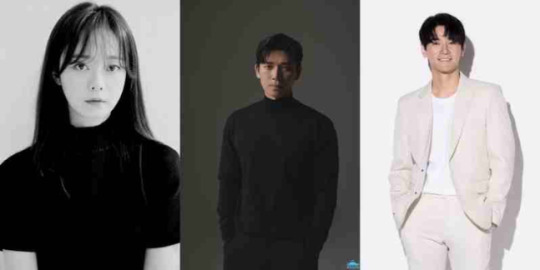
Here, the role of Hayeon's husband 'Woojae' is played by actor Ha Soo-ho. Since his debut, actor Ha Soo-ho has expanded his scope of activities to include screens, TVs, and OTT series, and is showing impressive acting across genres. In particular, he left a strong impression on viewers with his impactful acting as a vicious villain in Netflix's 'The Hounds' last year and in Disney+'s 'Han River'. Ha Soo-ho is solidifying his position as an actor. This work raises expectations about how the heavy and ugly truth hidden behind death will be expressed in detail.
In addition, actor Jeong Hee-tae will play the role of 'Nam Kyung-jang', who begins to investigate the surroundings while suspecting 'Woo-jae's' accident, and 'Kim Kyung-jang' will be played by newcomer Jeon Young-chan. Actor Jeong Hee-tae, who showed outstanding acting in the dramas 'Wedding Impossible', 'House with a Yard', and the movies 'My Neighbor' and 'Cheer Up, Mr. Lee', takes on the role of Detective Nam Kyung-jang, who is investigating the case in detail. It will add weight to the play. Meanwhile, actor Jeon Young-chan is recognized for his acting skills in short films such as 'Daejeon, 1960' and 'Lighthouse', and recently, he is a rookie with infinite possibilities and potential with his passionate passion in dramas such as the drama 'Cheer Up' and the OTT series 'Dominant Bell' and 'Deal'. am. Expectations are high for the diverse charms he will show through ‘Chief Inspector Kim’.
Jung Taekwoon, who plays the role of 'Arden', who is about to make his screen debut through 'Veranda', debuted as the main vocalist of the group VIXX in 2012 and received a lot of love for his unique voice and eye-catching charm, and has appeared in the musical 'Full House' since 2014. , 'Mata Hari', 'Monte Cristo', 'Elisabeth', 'Marie Antoinette', 'Frankenstein', 'The Great Comet', as well as the play 'Tebesland', and has been praised for her passionate performances regardless of genre, becoming an all-rounder with acting skills. It came out. In this 'Veranda', he plans to further expand his range of acting by playing the role of a mysterious character who spies on Hayeon's house and learns her secret.
In addition, this film 'Veranda' won the Grand Bell Award for Art Director with the film 'Moss', and he served as art director and set manager for leading works representing Korea such as 'Battleship Island', 'Sabaha', 'Korean Peninsula', and 'Bat'. Since this is the first work directed by director Seong-won Cho, it is attracting particular interest and expectations.
The movie 'Veranda', which is raising expectations with the appearance of many actors with solid acting skills such as Jeon So-min, Ji Seunghyun, and Ha Suho, as well as excellent supporting roles, is scheduled to be released in 2025.
Jeon So-min and Ji Seunghyun confirmed to appear in ‘Veranda’… Jung Taekwoon's screen debut
Actors Jeon So-min, Ji Seung-hyun, and Ha Soo-ho are coming together for 'Veranda'.

26 Company Co., Ltd. said, "This work, which relieves the burden of drama from the existing genre of 'erotic thriller' and has a narrative that highlights a more sophisticated and sensuous mise-en-scène, is named as a genre 'romantic thriller', and provides a unique and fun experience." “I wanted to create an emotion,” he said, expressing his production aspirations.
Jeon So-min takes on the role of Jeong Ha-yeon, who is threatened by a mysterious person claiming to know the secret about her husband's death. Jeon So-min plays Jeong Ha-yeon, who senses that someone stalking her house is related to her husband's death and sets out to find her. She is able to establish herself as a thriller queen with her strong maternal love for her son A-ram. I plan to go through another acting transformation.
Ji Seung-hyeon plays the role of Hyun-woo, who lost his beloved wife and child. As Hayeon's son Aram follows Hyunwoo, attention is focused on how Ji Seung-hyun will portray Hyunwoo, who begins to dream big in new hope with Hayeon.
Hayeon's husband Woojae is played by Ha Soo-ho. After his debut, Ha Soo-ho, who expanded his scope of activities to the screen, TV, and OTT series, and showed impressive acting across genres, raises expectations about how he will densely express the heavy and ugly truth hidden behind death.
In addition, actor Jeong Hee-tae plays the role of Nam Kyung-jang, who begins to investigate the surroundings while suspecting Woo-jae's accident, and newcomer Jeon Young-chan plays the role of Kim Kyung-jang.
Jung Taekwoon (Leo), who plays the role of Arden, who is about to make his screen debut through 'Veranda', debuted as the main vocalist of VIXX in 2012 and received a lot of love for his unique voice and eye-catching charm. Since 2014, he has been well received for his passionate performances across genres in musicals such as ‘Full House’, ‘Mata Hari’, ‘Monte Cristo’, ‘Elisabeth’, ‘Marie Antoinette’, ‘Frankenstein’, and ‘The Great Comet’ as well as the play ‘Tebesland’. He was reborn as an all-rounder with acting skills. In this 'Veranda', she plans to further expand her range of acting by playing the role of a mysterious person who spies on Hayeon's house and learns her secret.
'Veranda' won the Grand Bell Award for Art Director for the movie 'Moss', and director Seong-won Cho, who was in charge of art direction and set responsibility for leading representative works of Korea such as 'The Battleship Island', 'Sabaha', 'Korean Peninsula', and 'Bat', etc. This is the first work that took on a megaphone. It is targeted for release in 2025.
4 notes
·
View notes